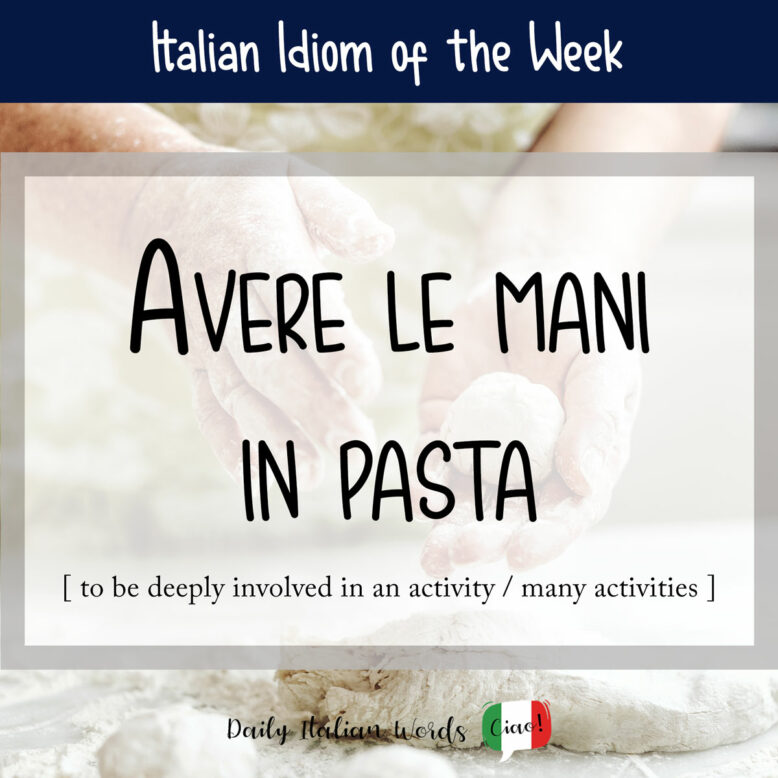If you know someone who is deeply engaged in various activities and wields significant influence and authority within a specific sector, you can say that he or she has le mani in pasta which literally translates to “to have one’s hands in the dough”.
avere le mani in pasta
to be deeply involved in an activity / many activities

The expression projects the image of a person who not only knows how to handle the “dough” (representing a business, activity, or affair) but can also influence how the final product is crafted. It conveys a sense of active involvement, influence, and a hands-on approach in shaping the outcome of a situation or endeavour.
Il politico ha le mani in pasta in tutti gli affari del paese.
The politician is deeply involved in all the country’s affairs.
Although this idiom can be used in a positive context, it typically describes someone engaged in questionable or dishonest affairs. The reference to the dirty state of one’s hands after kneading dough draws an allusion to being engaged in unscrupulous business. Notably, the Italian adjective sporco (dirty) also conveys the figurative meanings of shady or dishonest.

There is an English idiomatic expression that closely aligns with the Italian one: to have a finger in every pie. However, it lacks the messy imagery of a person with their hands covered in sticky dough.
Heather Broster is a graduate with honours in linguistics from the University of Western Ontario. She is an aspiring polyglot, proficient in English and Italian, as well as Japanese, Welsh, and French to varying degrees of fluency. Originally from Toronto, Heather has resided in various countries, notably Italy for a period of six years. Her primary focus lies in the fields of language acquisition, education, and bilingual instruction.


